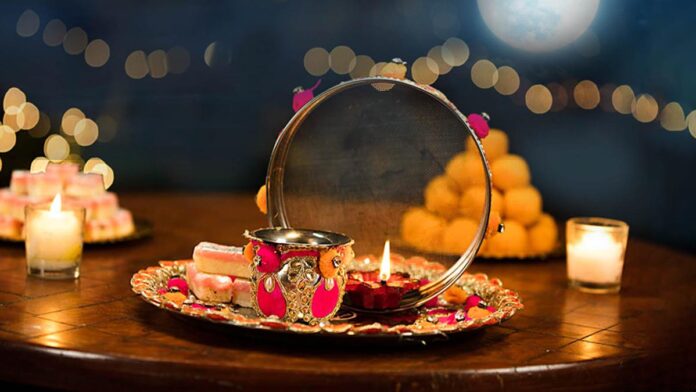October 16, 2024: Karva Chauth is a revered Hindu festival celebrated predominantly in northern India, where married women observe a day-long fast for the well-being and longevity of their husbands. The festival, filled with rituals and traditions, is a beautiful expression of love, devotion, and the deep bond shared between couples. Over the years, Karva Chauth has evolved from being a purely religious practice to a cultural event celebrated with enthusiasm and modernity, while still holding onto its deep-rooted significance.
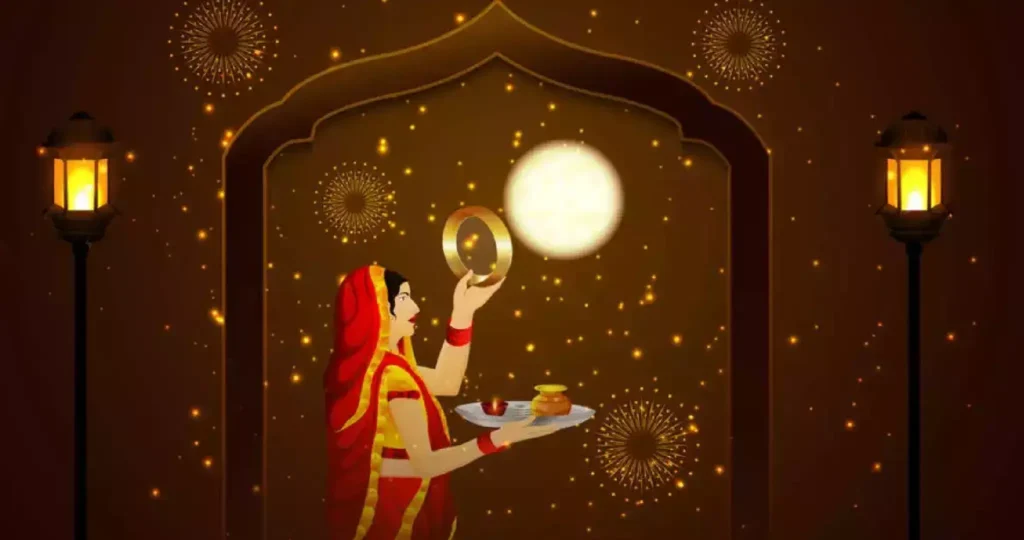
The Origins of Karva Chauth
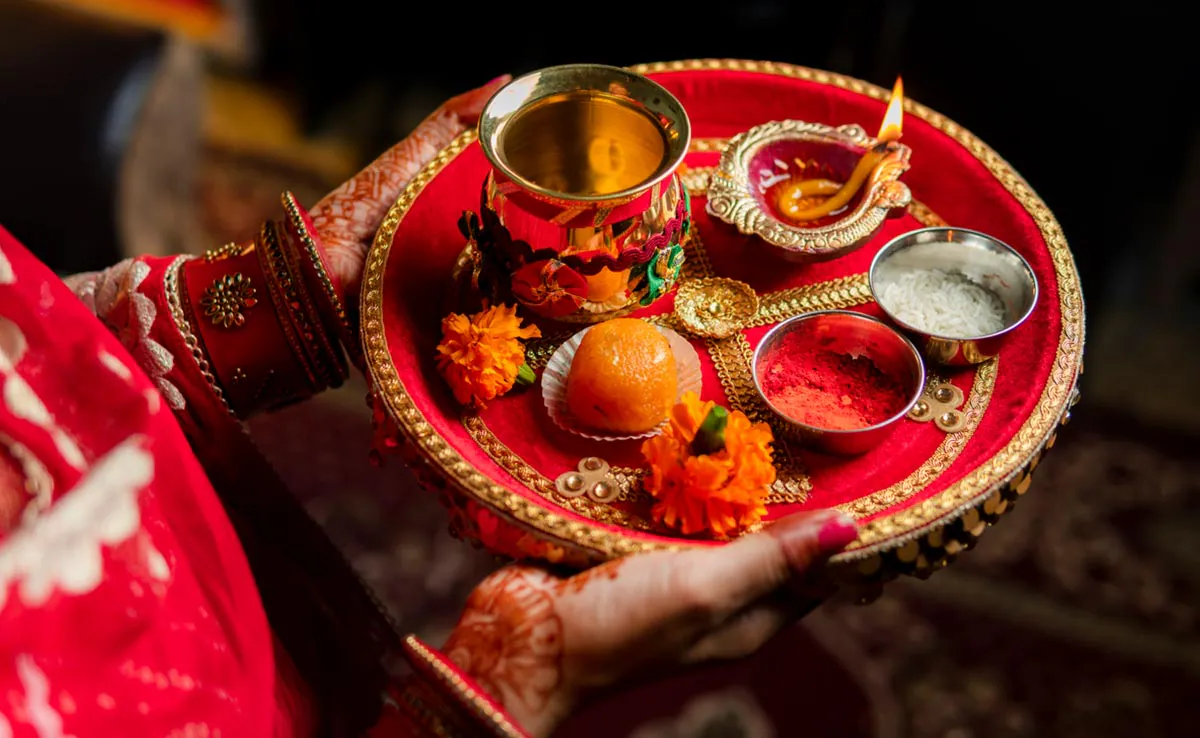
The name Karva refers to an earthen pot, which symbolizes peace and prosperity, while Chauth means the fourth, as the festival falls on the fourth day after the full moon in the Hindu month of Kartik. Traditionally, it is said that Karva Chauth began as a way for women to pray for their husbands’ safety, especially in times when men would leave for long journeys or wars.
The Rituals of Karva Chauth
On the day of Karva Chauth, women wake up early, usually before sunrise, to eat a pre-dawn meal known as Sargi, traditionally prepared by their mothers-in-law. After this meal, they begin their fast, abstaining from both food and water throughout the day.
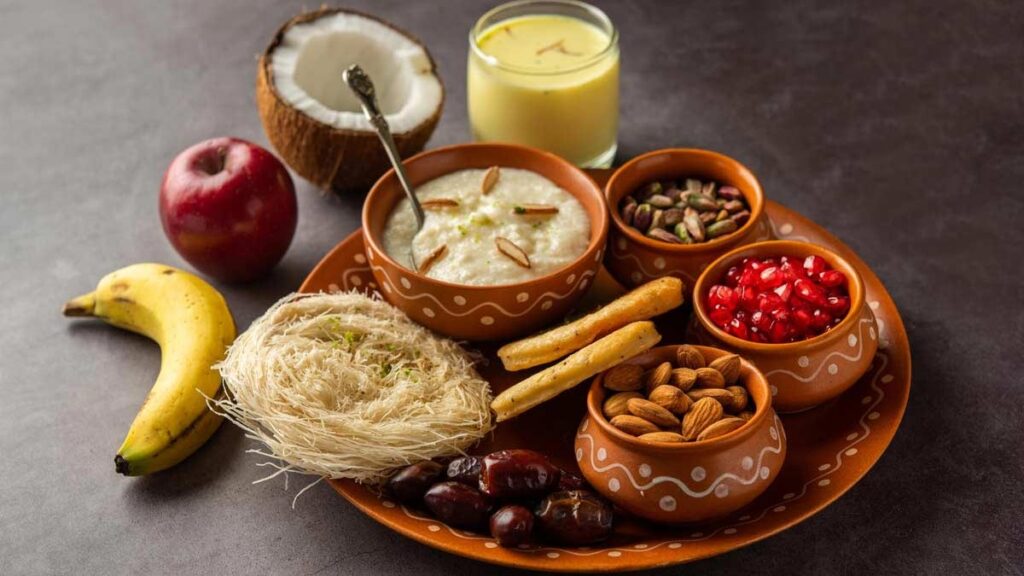
Throughout the day, women gather in groups, dress in festive attire, often wearing bridal-like clothing, and apply intricate mehndi (henna) designs on their hands. In the evening, they come together to perform a special prayer, known as Karva Chauth Puja, where they listen to stories about the significance of the festival.
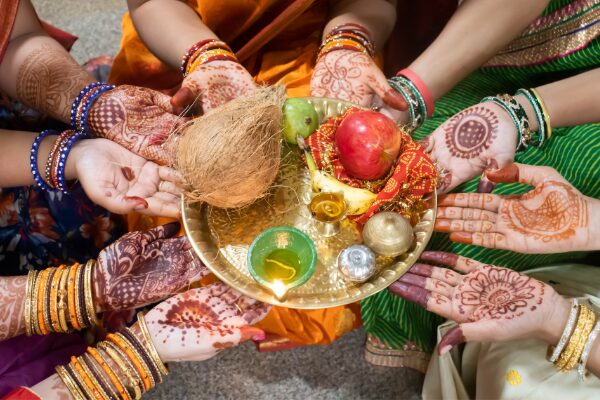
The fast is broken only after sighting the moon. The women offer water to the moon and pray for their husband’s longevity. Their husbands, in turn, help them break their fast by offering them the first sip of water and a piece of food, marking the end of the fast.
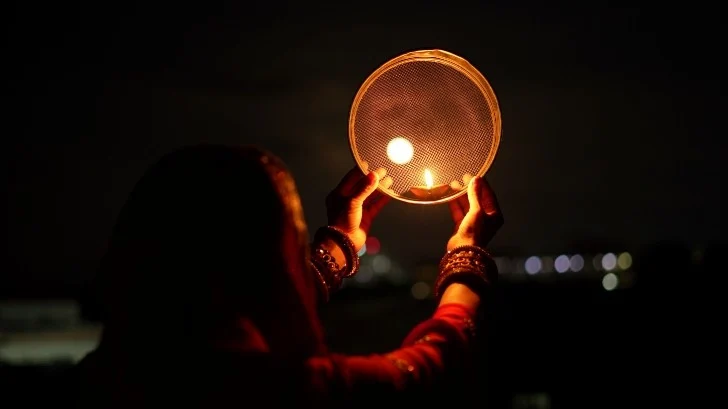
Modern-Day Significance
While Karva Chauth remains a significant religious and cultural practice, its modern-day interpretation has expanded. It is now often seen as a celebration of love and commitment in marriages, with many couples participating together in the fasting ritual, emphasizing equality and mutual respect in the relationship. Additionally, many unmarried women also observe the fast in hopes of finding a good life partner.
Karva Chauth has also made its way into popular culture, especially in Bollywood movies, where iconic scenes depict the emotional and symbolic importance of the festival.
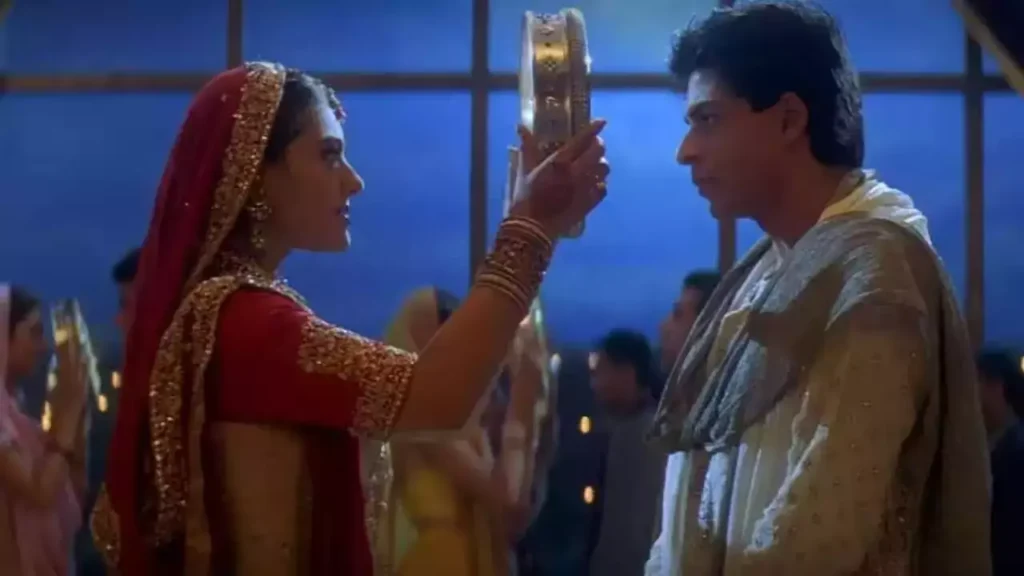
Conclusion
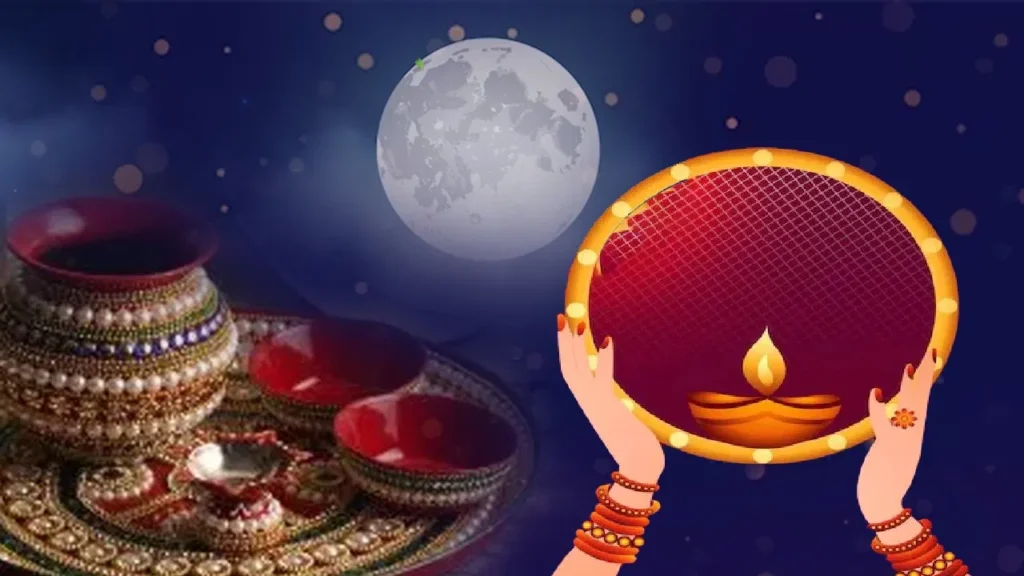
Karva Chauth continues to be a cherished festival that blends tradition with modernity. While its rituals have remained largely unchanged, the festival’s broader meaning has adapted to contemporary relationships, reflecting both the spiritual and romantic aspects of marriage.



